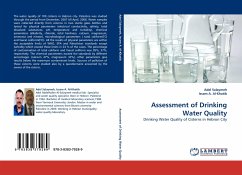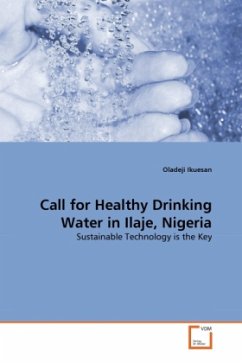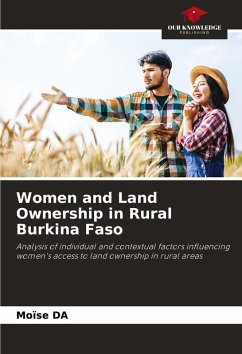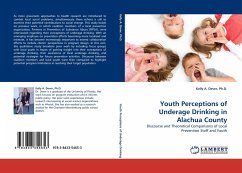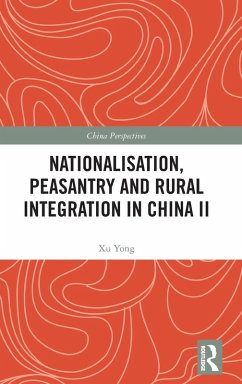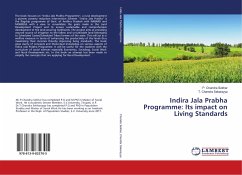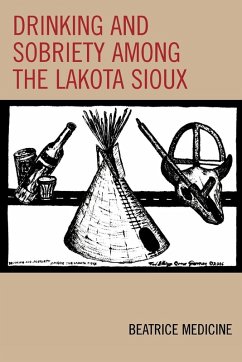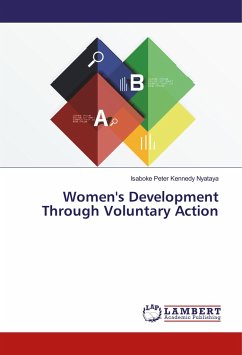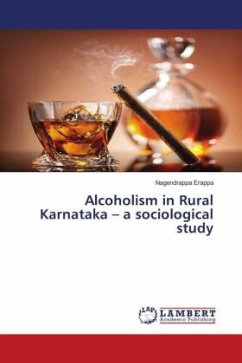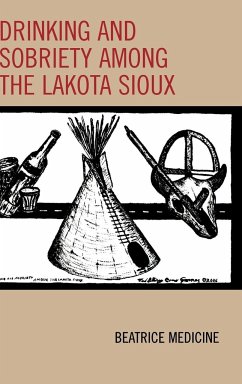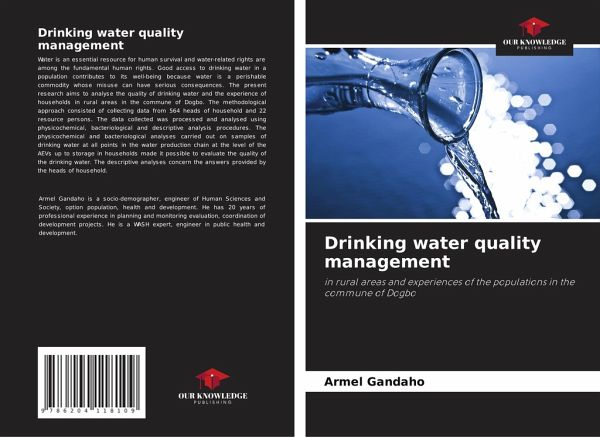
Drinking water quality management
in rural areas and experiences of the populations in the commune of Dogbo
Versandkostenfrei!
Versandfertig in 6-10 Tagen
36,99 €
inkl. MwSt.

PAYBACK Punkte
18 °P sammeln!
Water is an essential resource for human survival and water-related rights are among the fundamental human rights. Good access to drinking water in a population contributes to its well-being because water is a perishable commodity whose misuse can have serious consequences. The present research aims to analyse the quality of drinking water and the experience of households in rural areas in the commune of Dogbo. The methodological approach consisted of collecting data from 564 heads of household and 22 resource persons. The data collected was processed and analysed using physicochemical, bacter...
Water is an essential resource for human survival and water-related rights are among the fundamental human rights. Good access to drinking water in a population contributes to its well-being because water is a perishable commodity whose misuse can have serious consequences. The present research aims to analyse the quality of drinking water and the experience of households in rural areas in the commune of Dogbo. The methodological approach consisted of collecting data from 564 heads of household and 22 resource persons. The data collected was processed and analysed using physicochemical, bacteriological and descriptive analysis procedures. The physicochemical and bacteriological analyses carried out on samples of drinking water at all points in the water production chain at the level of the AEVs up to storage in households made it possible to evaluate the quality of the drinking water. The descriptive analyses concern the answers provided by the heads of household.



